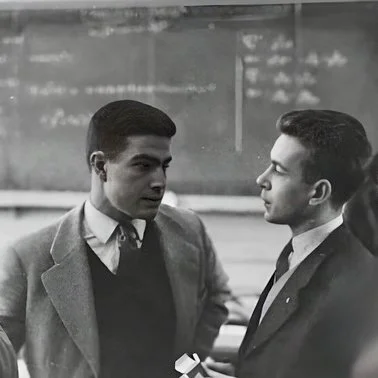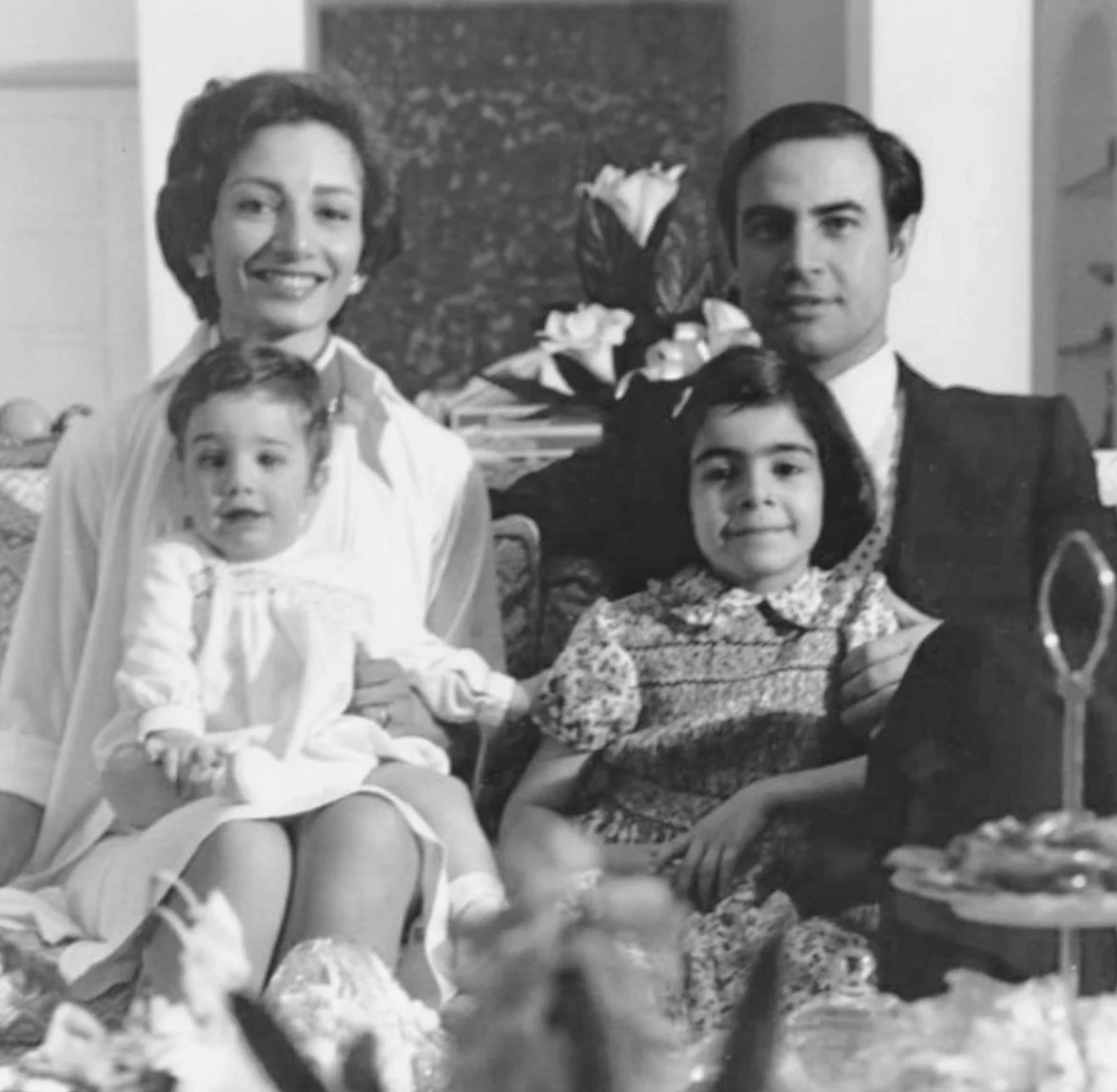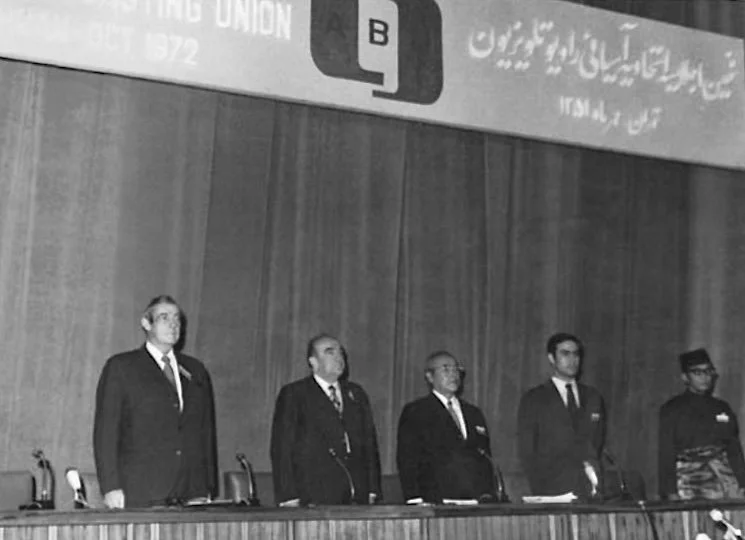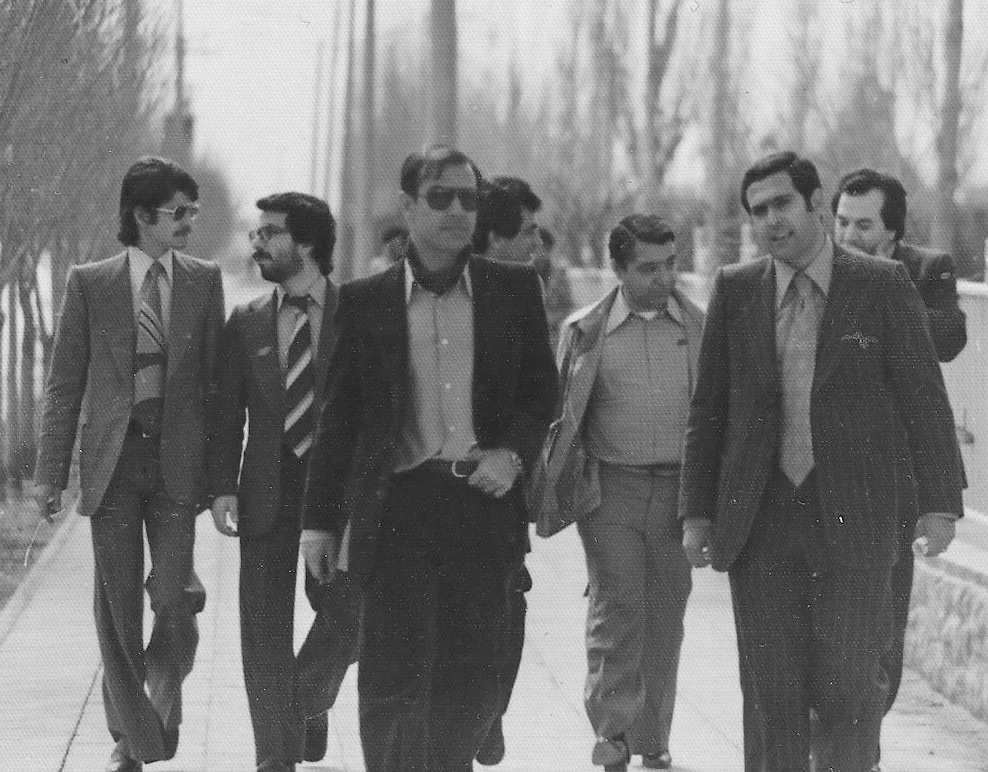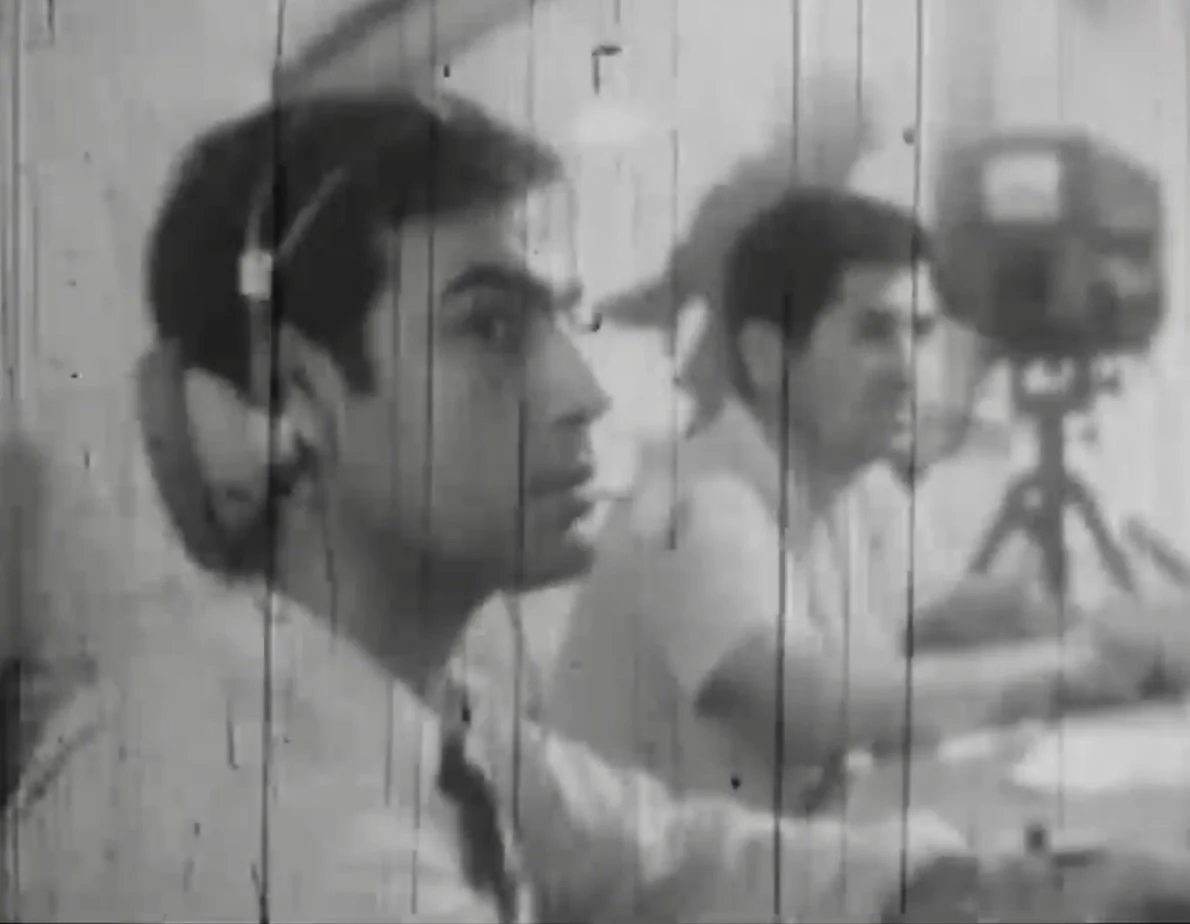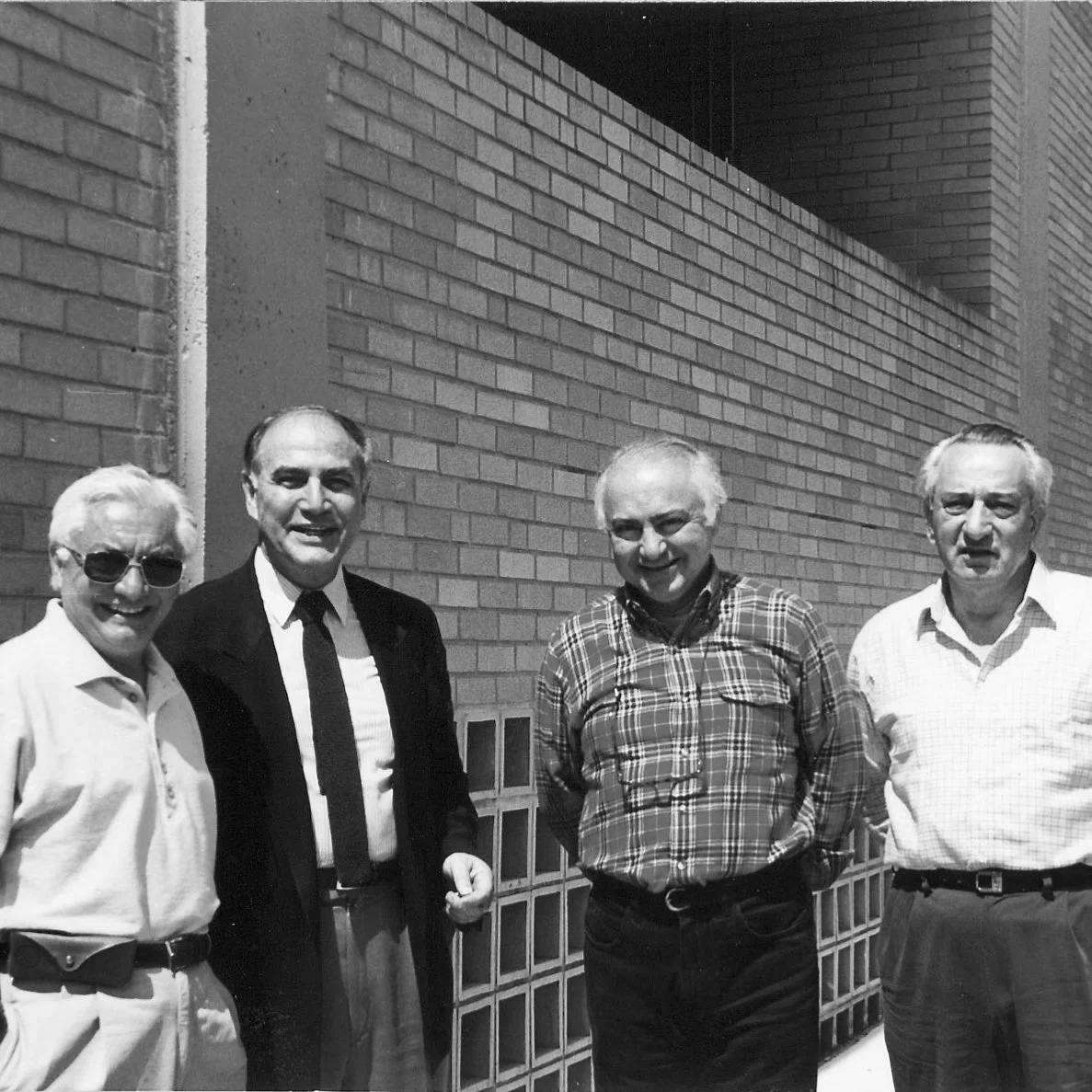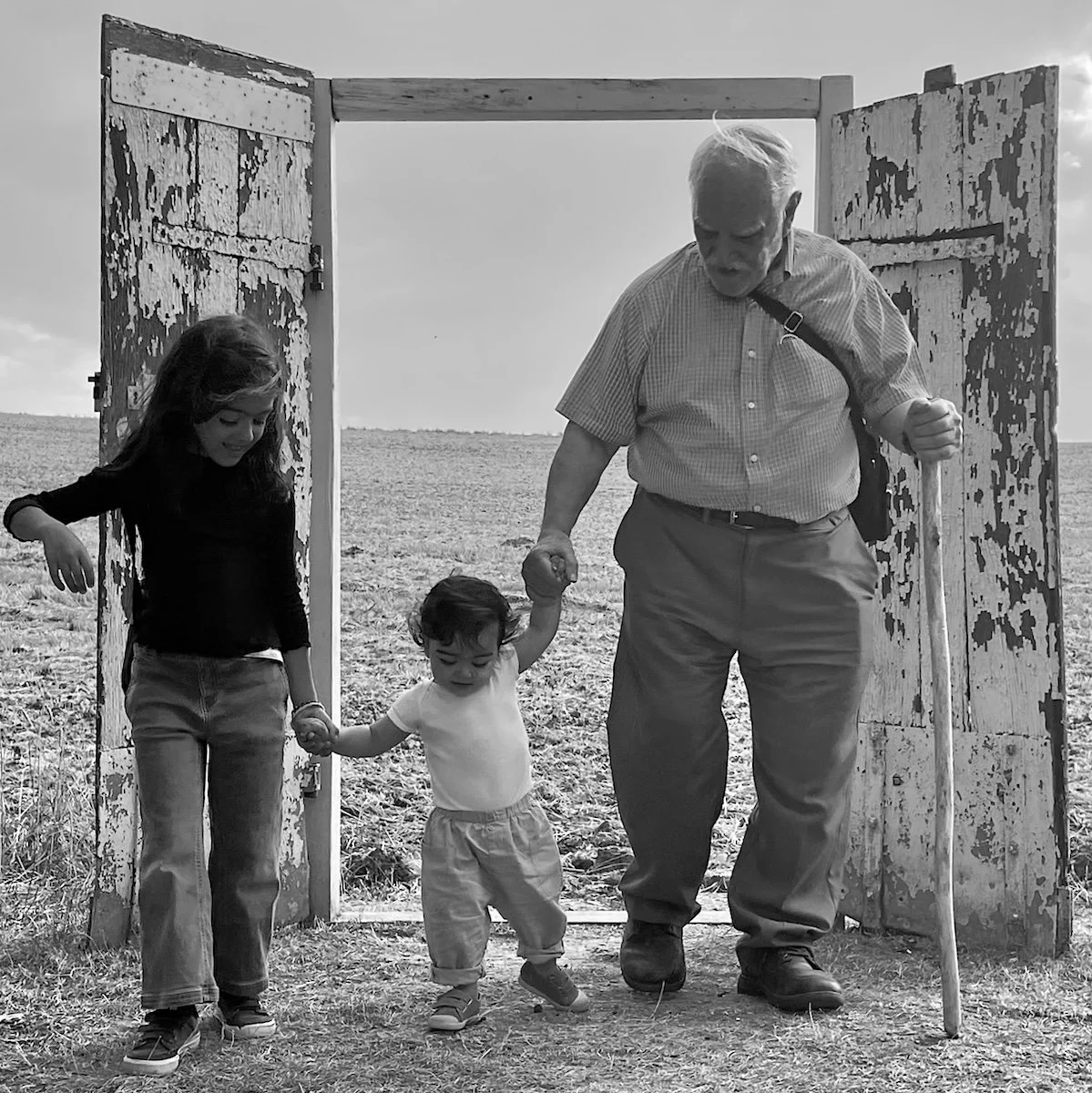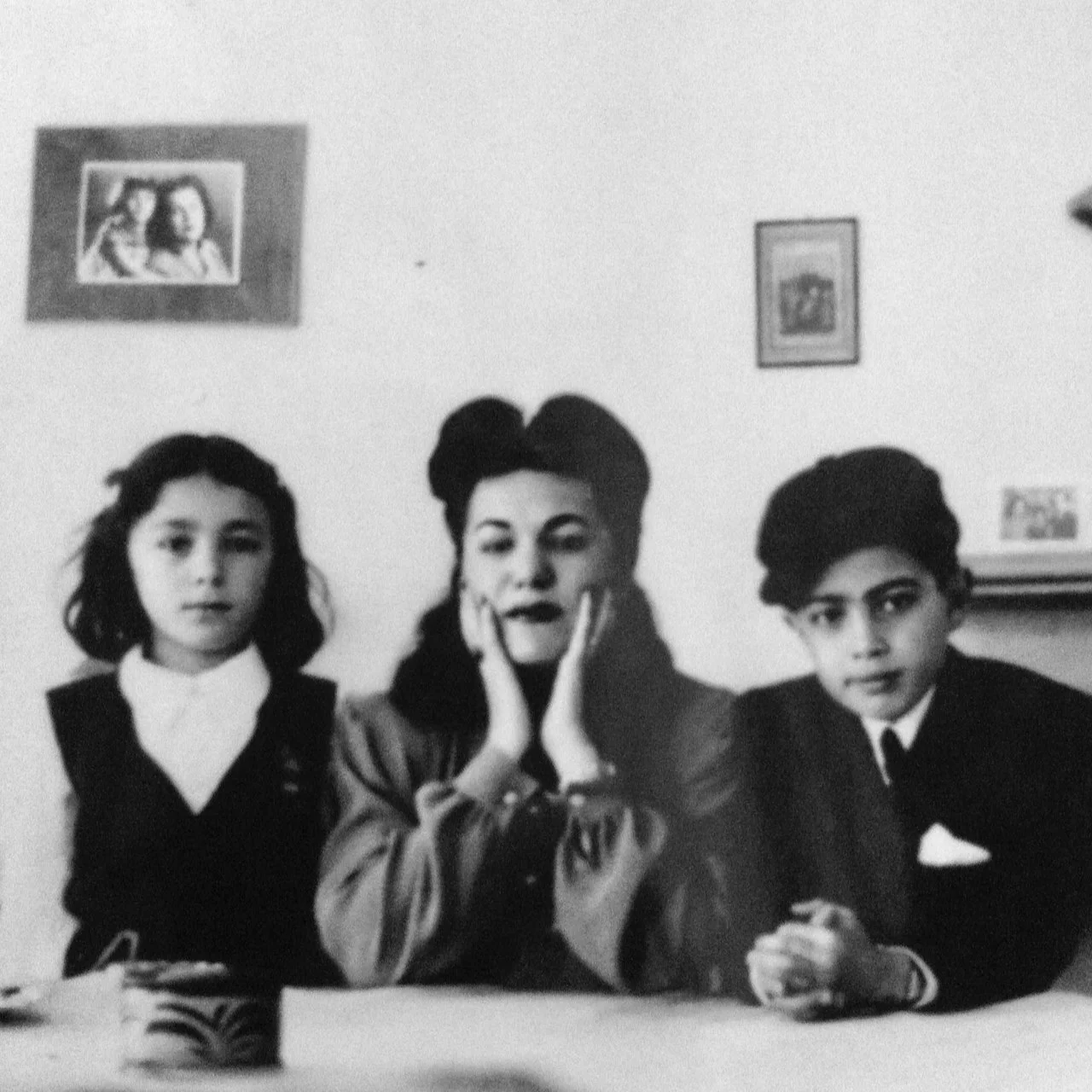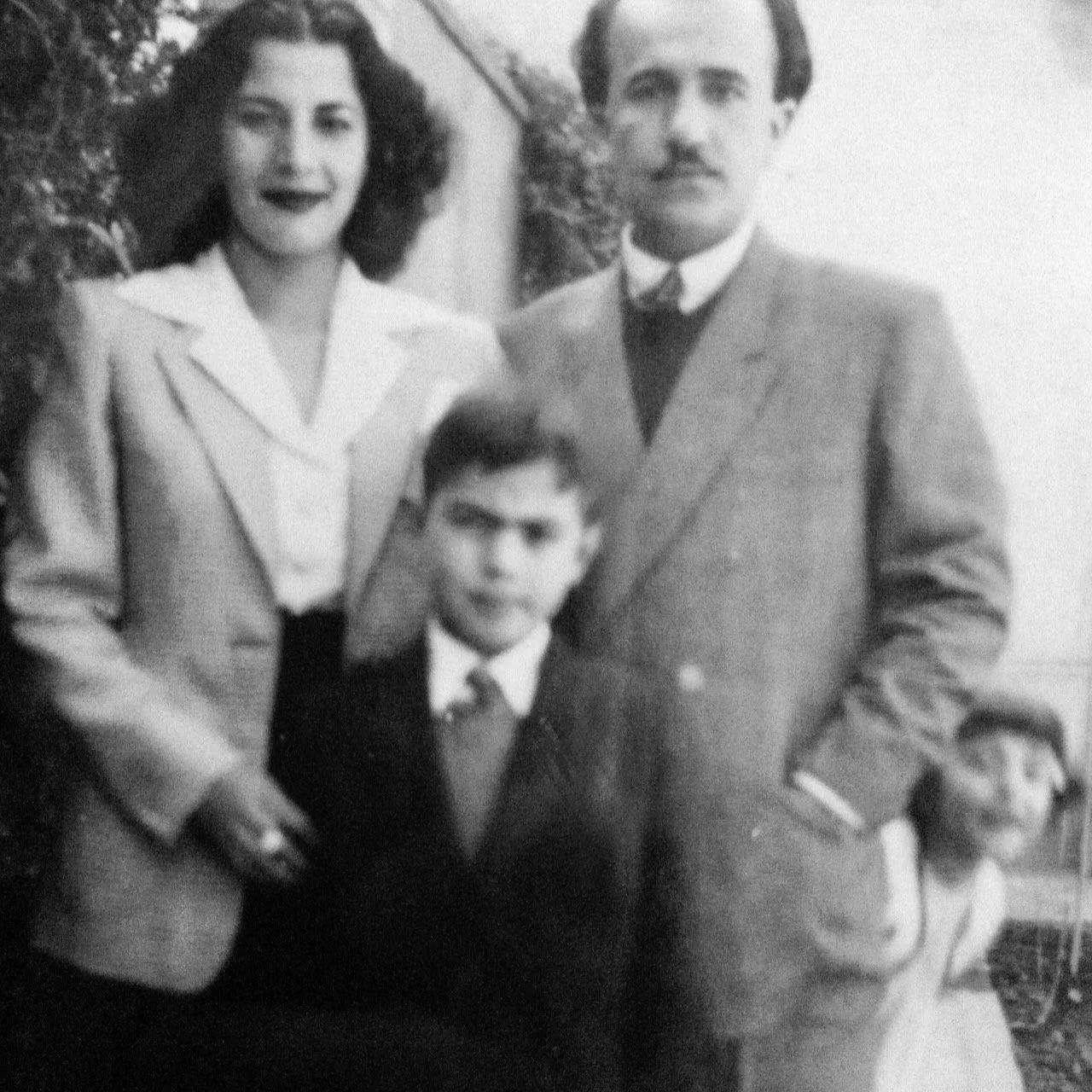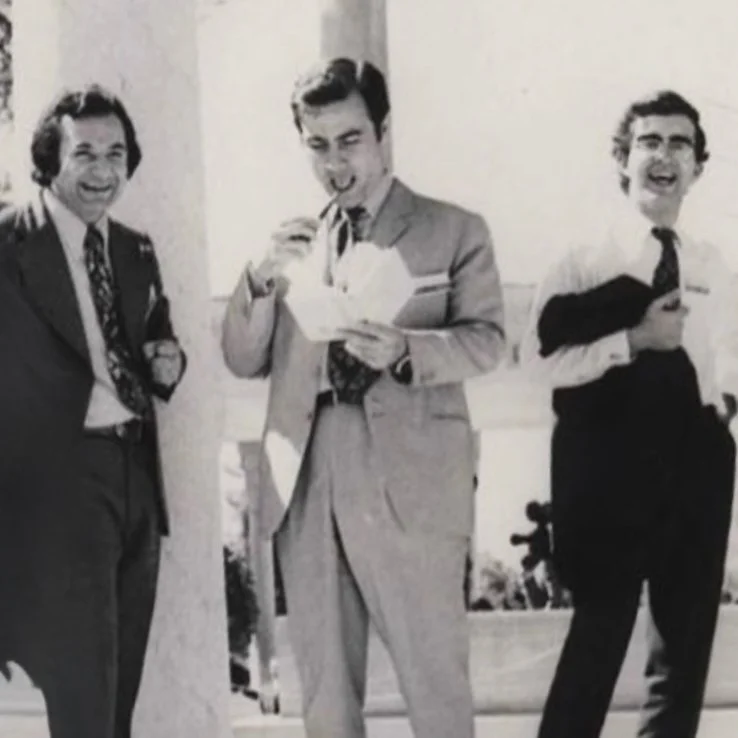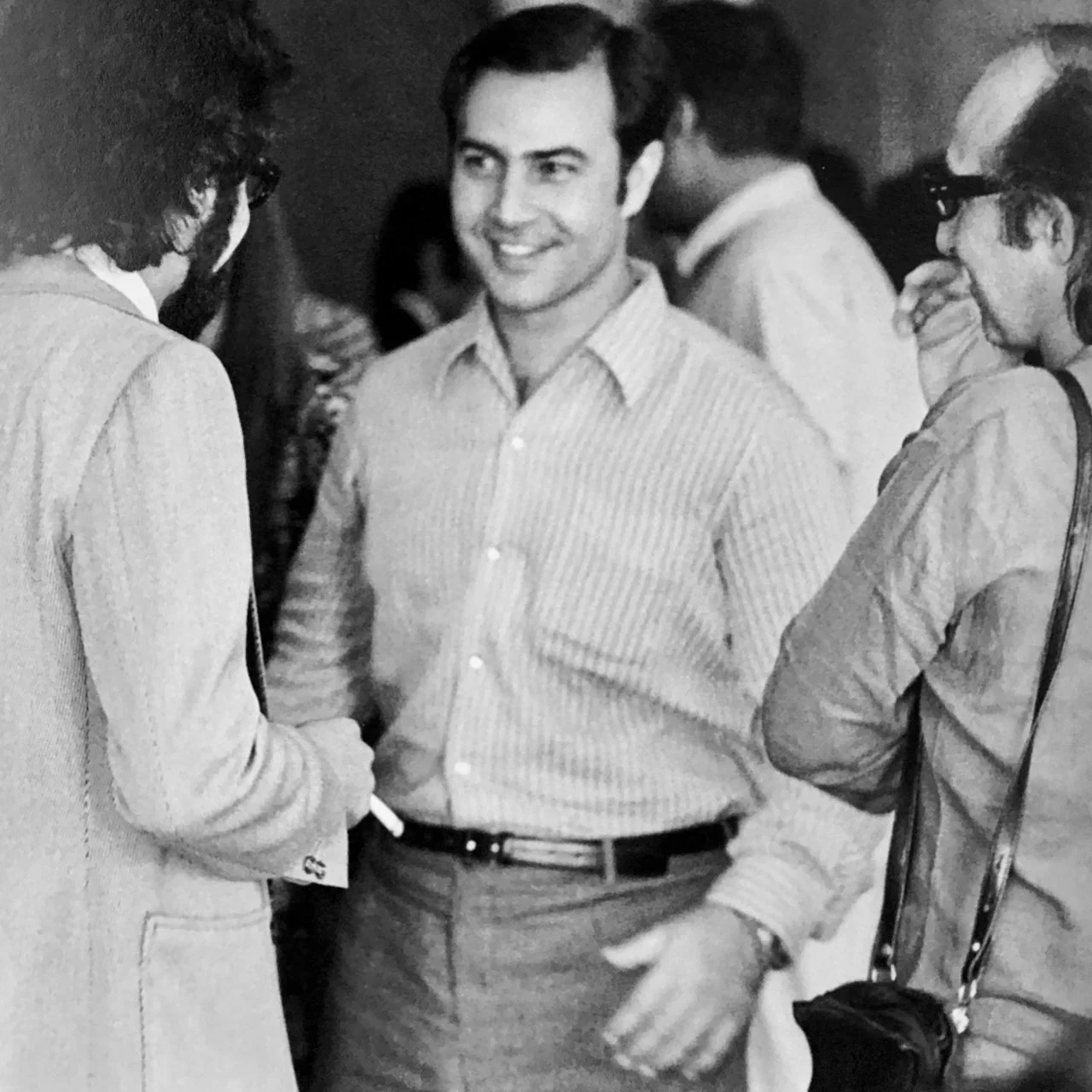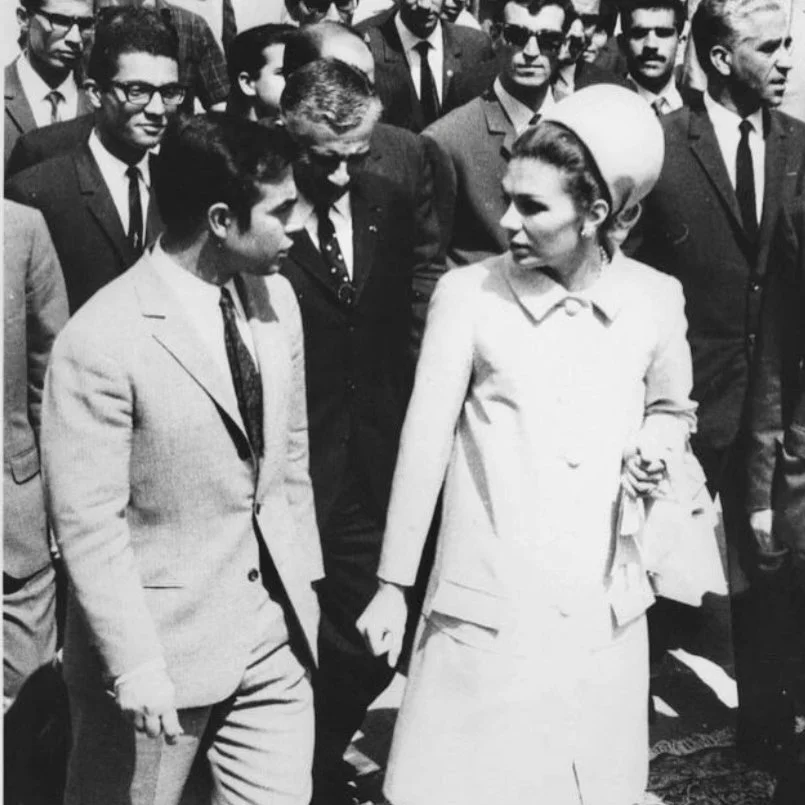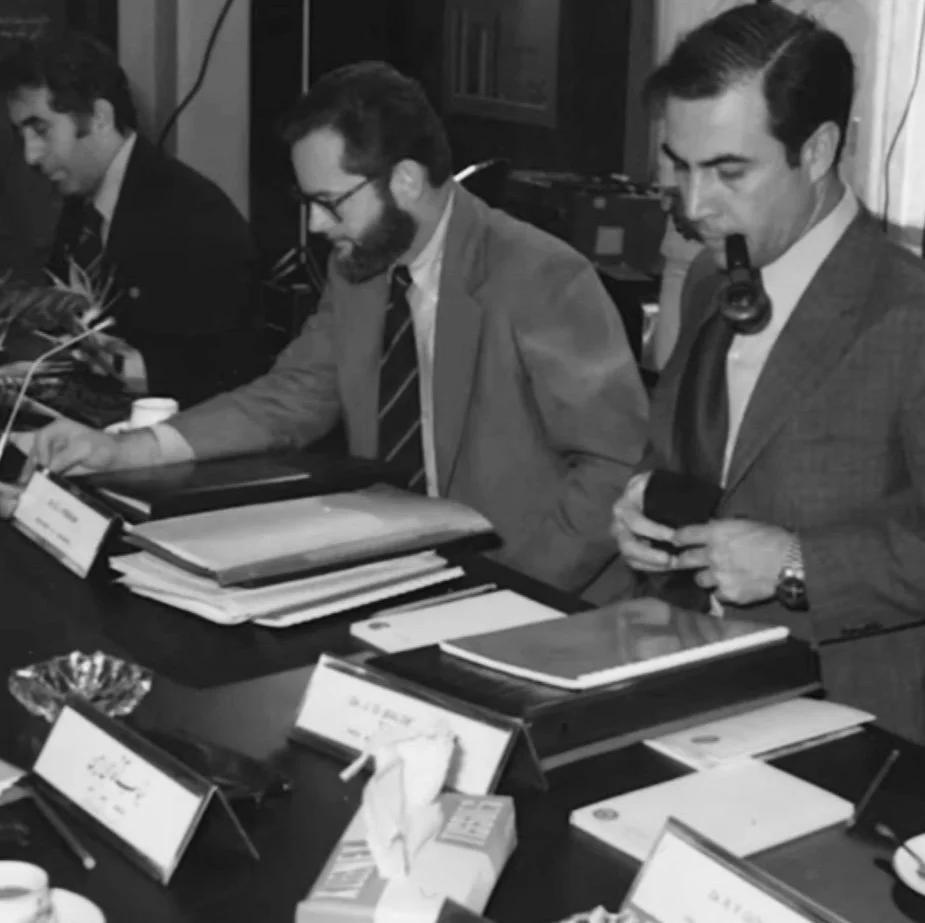EARLY LIFE
Reza Ghotbi (Qotbi) was born in Tehran in 1938, the only child of Louise Samsam Bakhtiari and Mohammad-Ali Ghotbi. He grew up in a close-knit household living with his parents, his paternal aunt and uncle, Farideh and Sohrab Diba, and their only child, Farah. She later married Mohammad Reza Shah Pahlavi and reigned as queen until the Islamic revolution in 1979.
EDUCATION
Ghotbi was a good student and a fervent patriot. While attending Firouzkouhi Primary School, he joined the Pan-Iranist Foundation (but not the Party) at age eleven, a year earlier than the stated regulations. Sometime after, a communist youth severely stabbed him in the back during a demonstration, a scar he had until the very end. Wholly devoted to the Shah and a staunch admirer of Prime Minister Mosaddegh, the feud between the two in the early 1950s turned him off politics altogether. At Alborz High School he turned his focus to his studies and sports instead and joined the Boy Scouts.
He received his bachelor's degree in mathematics from the Faculty of Sciences at the University of Paris before taking intense preparatory courses for entry into the prestigious grandes écoles system. He was accepted into the École Centrale school of engineering (now known as CentraleSupélec) and followed his post-graduate studies at the École Nationale Supérieure des Télécommunications, a specialized school of engineering (now renamed Télécom Paris). He then returned to Iran and taught mathematics at the Aryamehr University (now Sharif University).
CAREER
The Plan Organization ( سازمان برنامه ) retained Ghotbi where he was tasked with preparing a blueprint for the development of a national television in Iran. Uninterested in a management or administrative career, he planned to pursue his passion for mathematics at the Massachusetts Institute of Technology (MIT) once his task was completed. Yet, driven by a sense of patriotic duty and the opportunity to help his country develop and thrive, he agreed to stay when asked to oversee the newly established National Iranian Television (NITV) and devoted himself to the task tirelessly. In 1971, NITV merged with Radio Iran under his leadership to become the National Iranian Radio and Television (NIRT).
He married Sheherazade Afshar, a musician who shared many of his ideals for the future of the country and the sense of duty toward its people. They had two children, Azadeh and Sohrab.
Reza Ghotbi fast-tracked building a nationwide network of high-powered television and radio stations across the country. A champion of domestic technical self-reliance, synergy and cost efficiency, he ensured the country was able to assemble, then later design television transmitters, repeaters and even low-cost satellite receivers. He also had the foresight to initiate research in the potential of hybrid solar and wind energy to provide power to isolated parts of the network’s infrastructure (for more on his engineering and technical achievements, see Vardkes Esrailian’s descriptions under TRIBUTES).
In pursuit of excellence, Ghotbi sought and recruited bright students and young professionals from diverse fields and backgrounds and offered them training. His work ethic, honesty, open-mindedness and supportive managerial style were deeply appreciated by the staff and are fondly remembered to this day. During his tenure, NIRT grew to be the most important broadcasting network in the region. Under his leadership, NIRT was a progressive organization that was ahead of its time. Ghotbi supported the free exchange of ideas and treated all employees as equals regardless of their social or institutional position; he empowered women to hold creative, technical, and executive positions, and offered daycare services to lighten the burden on families with young children. Importantly, he consistently resisted pressure from the intelligence and the security services (SAVAK), and defied their attempts at censorship and interference in NIRT’s operations.
A polymath, Ghotbi also played a critical role in creating and developing key cultural platforms and programs. These included: The Iran Research Unit ( گروه پژوهش ایران زمین ), Center for the Preservation & Propagation of Iranian Music ( مرکز حفظ و اشاعه موسیقی ) and within it Regional Music Group (گروه مو سیقی نواحی ایران ), NITV Chamber Orchestra ( ارکستر مجلسی تلویزیون ملی ایران ), Music Workshop for Children & Young Adults ( کارگاه موسیقی کودکان و نوجوانان ), Theatre Workshop ( کارگاه نمایش ), College of Television & Cinema ( مدرسه عالی تلویزیون و سینما ), Educational Television(تلویزیون آموزشی) , Tel-Film (تل فیلم), which produced documentaries and feature films, and Cinema-ye Azad ( سینمای آزاد ). NIRT’s other significant contribution to public education was the weekly Tamasha Magazine (مجله تماشا), and Soroush (انتشارات سروش), which published about 100 notable titles in the humanities, social sciences, and technology.
Ghotbi also led the annual Shiraz Arts Festival ( جشن هنر شیراز ـ تخت جمشید ), an international performing arts event that was held for eleven years every summer from 1967 to 1977 under the patronage of Shahbanou Farah Pahlavi. In 1974, he also launched the Tous Festival ( جشن طوس ) in Mashhad, which celebrated Ferdowsi and arts and rituals related to Iranian epic poetry, and in 1977, the Festival of Popular Culture ( جشن فرهنگ مردم ) in Isfahan. Under his leadership, NIRT set up stations across the country and he encouraged local productions which were then broadcast nationwide to showcase the diversity and richness of Iranian culture.
He offered his resignation from NIRT a number of times for different reasons (see the first two questions in the Q&A section under INTERVIEWS ). They were all denied. He handed in his last resignation during the final stretch leading to the revolution when he felt he could no longer help, believing someone with political acumen should lead the organization instead. His resignation was accepted on September 8, 1978.
REVOLUTION
Two months later, one evening, the Shah called Ghotbi directly at home, seemingly without the knowledge of his Chief of Protocol Amir Aslan Afshar. The Shah intended to appoint a new cabinet headed by a military figure the next day and wanted Ghotbi to help prepare his speech for a televised address to the nation. Ghotbi tried to persuade the Shah to resort to someone with speechwriting expertise but to no avail. The Shah shared his thoughts about the speech and asked Ghotbi to collaborate with Seyyed Hossein Nasr, to whom he said, he had sent some pertinent notes earlier. Later than evening, he also sent a handful of notes to Ghotbi that were typewritten and unsigned, evidently submitted by different people. One sheet included a handwritten line in the margin that read, “I have heard the message of your revolution” and which presumably appealed to the Shah as it was starred. The next day Nasr and Ghotbi drafted a speech based on their collective notes. The speech was aired on November 6, 1978. You can watch Dr Nasr’s description of the events by clicking here (from minute 9:24) and reading his notes about it here. A number of people called the palace in response to thank the Shah for his words, among them former Prime Minister Ali Amini and Dr. Abdolkarim Lahiji, president of the International Federation for Human Rights in Iran. Ayatollah Shariatmadari, one of the highest ranking Shi’a authorities in Iran, said it brought tears to his eyes but declined to share his views publicly as some members of his household had joined the revolution. The Shah himself thanked Nasr for it one day after it aired. Despite its expression of empathy with the people, however, the speech did not have the desired effect. Once in exile, having heard criticism that his message might have been interpreted as weakness, the Shah came to regret it and blamed Ghotbi for it. Yet others thought it was “too little too late” and that no speech could have withstood the force of the turbulence that had engulfed the country for some time. By November 1978 , debilitating strikes, anti-government protests and political unrest was so widespread that no speech could have assuaged the people’s level of discontent or altered the course of history. The Shah left Iran less than two months later, on January 16, 1979. Within two week Ayatollah Khomeini had arrived in Iran greeted by fervent crowds.
POST REVOLUTION
As the revolutionary fever grew, Ghotbi sent his family to safety in Paris but stayed on in Iran for several more months. Once the military declared itself neutral, which cleared the field for the revolutionary forces to take over, he realized that there was nothing more he could do. He left his beloved Iran to join his family in France. Ghotbi was condemned to death, in absentia—the revolutionary court targeted him among the first fifty names announced in newspapers -- while two of his brightest former colleagues and staunch patriots, Mahmoud Jafarian and Parviz Nikkhah were brutally executed by the new regime.
Unable to return to his beloved homeland, he was obliged to forge a new path, though Iran was never far from his mind. He returned to his interest in science and engineering and found work in telecommunications in the Washington, DC area where he settled for three decades. He and his wife eventually moved back to Paris to be close to their children and grandchildren.
Reza Ghotbi died from cancer in Paris, on August 26, 2024, at age of 86. He is remembered for his unwavering patriotism, honesty, intelligence, empathy and selflessness.

